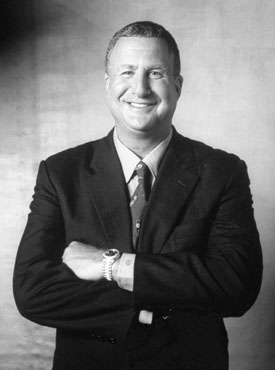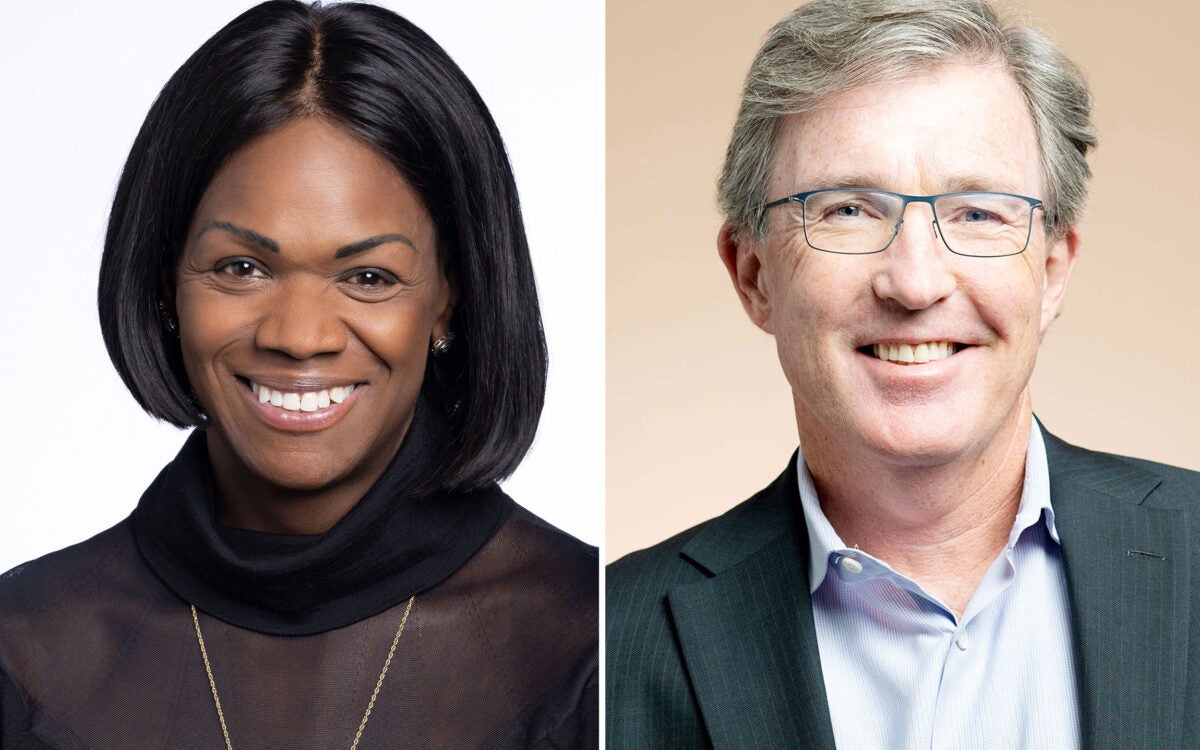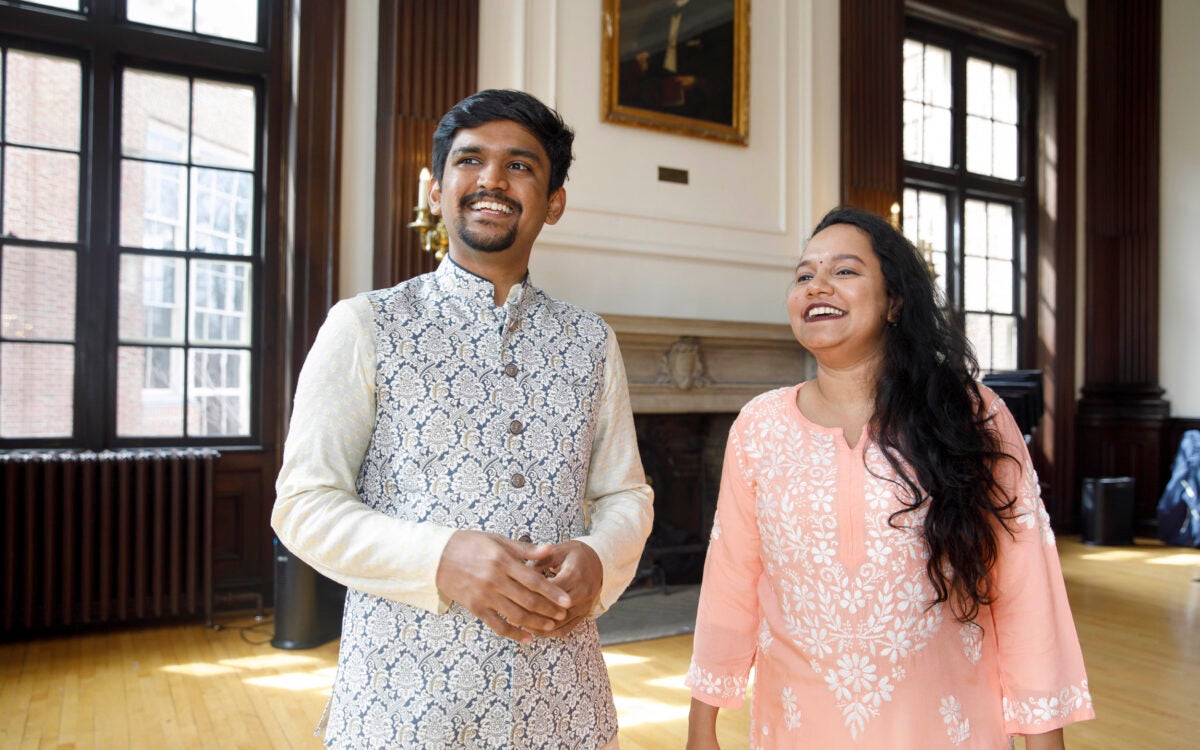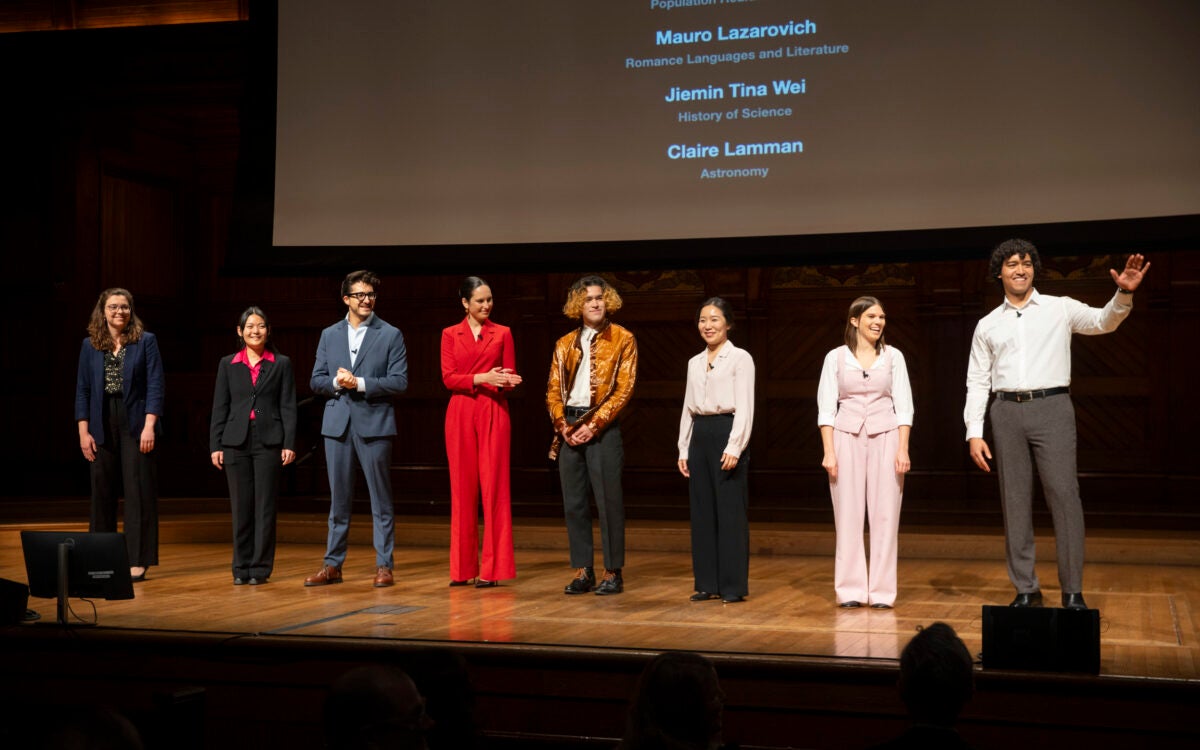Kaplan to give KSG inside scoop

The world was watching as Pope John Paul II embarked on his historic journey to Cuba three years ago – the first visit by the Catholic Church’s spiritual leader since Fidel Castro and his band of revolutionaries toppled the Batista regime in the island-nation in 1959. Reporters from around the globe assembled in Havana to document the pope’s arrival, his message to the Cuban people, and their reaction to his words.
Then, what was truly one of the most compelling international stories in years was suddenly and unceremoniously usurped by one of the most prurient: Monica Lewinsky.
It is a memory that continues to haunt former CNN President Rick Kaplan, and one that will undoubtedly spark many classroom discussions when Kaplan begins his appointment as Visiting Lombard Lecturer at the Joan Shorenstein Center on the Press, Politics and Public Policy at the Kennedy School of Government (KSG). Kaplan will teach a module titled “Do American Media Meet the Needs of a Modern Democracy?”
“In Rick Kaplan’s long career, he has felt the heat of controversy and the glory of achievement. Both experiences should make his course fascinating,” says Alex S. Jones, director of the Shorenstein Center.
Kaplan’s module will meet twice a week during the last six weeks of the spring semester, and will draw on the lecturer’s extensive broadcast journalism experience, giving students the rare opportunity to analyze the news business from the inside out.
“There are [competitive] pressures that are unique to [the news] business that cause it perhaps to lower its sights and lower its goals,” Kaplan says. “One must ask whether the drive for profit has made it almost impossible for networks to maintain their independence and originality.”
The result, Kaplan says, is an overemphasis on highly titillating, often innocuous stories that may knock more substantive hard-core issues out of the public consciousness. He’s seen it happen many times, he claims, during his years at CBS, ABC, and CNN.
“It’s not that [the networks] cover something in such a hideous way. More often than not, networks achieve that negative because of what they don’t cover,” he says. “Because all of a sudden stories that were more traditionally news-covered stories in past years don’t get covered at all because they don’t fit somebody’s paradigm of what people are interested in.
“You have people making choices about what people ought to see instead of basing it on traditional news values. They base it on somebody’s research or somebody’s need to deal purely with what will gain an audience, not what will meet some of those news needs.”
Much has changed in the business since Kaplan launched his career in television more than 30 years ago. An explosive growth in both broadcast and cable news programming, fueled by a ravenous public yearning for more and faster information, has in turn increased the competitive pressures on all media outlets to produce higher ratings, often resulting in a slicker, faster-paced, more “tabloid” news product.
“With news coverage now, there’s just not enough context and content,” Kaplan says. “It’s much more of a headline service than anyone had ever wanted it to be.”
The television networks do an adequate job of covering politics and presidential elections, according to Kaplan. “They’re making a much greater attempt to cover the issues in some degree of depth,” he says, “but more often than not, news mistakes are mistakes of omission.”
For instance, when President Clinton became embroiled in a sex scandal at the White House in January 1998, the pope’s visit to Cuba was no longer a front page story.
“If it’s an amazing [international] story, it will get coverage, but it won’t get much, or it will leave quickly,” Kaplan says. “For instance, Israel/Palestine and all the recent violence in the Middle East – it certainly got a certain degree of coverage, but the coverage it would have received 15 years ago would have been much more detailed.”
Kaplan hopes to bring these issues to light in the classroom.
“The joy of coming to Harvard is that you can really spend time teaching people of extraordinarily high intellect and potential, and you spend a lot of time dealing, talking, and interacting with people who are also of high intellectual quality,” he says. “So I hope that we’re not just writing a eulogy for network news, because I don’t think one is necessary, but I’m hoping that in our study, research, and discussion that we can find some ways to improve news coverage and show the networks a better way.”
Kaplan admits he’s anxious to get started.
“I can’t wait. It’s going to be so great,” he says. “I’m so excited.”




